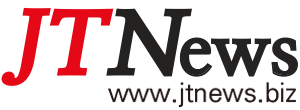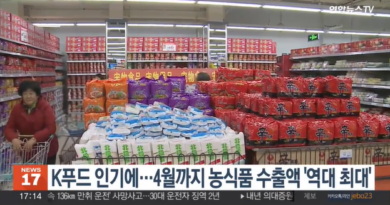Indonesia Halal Certification Mandatory Status Check Completed

The Ministry of Agriculture, Food and Rural Affairs (Minister Song Mei-ryeong, hereinafter referred to as the Ministry of Agriculture, Food and Rural Affairs) held a video conference with relevant organizations and export companies* on Tuesday, October 15 to listen to the status of preparation and difficulties faced by each export company in response to the implementation of Indonesia’s mandatory halal certification.
- Participating companies: 8 companies including coffee processing products, kimchi, soy sauce, ramen, food additives, beverages, and sauces
- Indonesian agricultural and food product export performance (as of the end of September): USD 190 million (up 3.3% year-on-year)
Indonesia announced that it will make halal certification labeling mandatory for food and beverages imported and distributed in the country starting October 17, 2024, in accordance with the Halal Product Guarantee Law, and the government has been working closely with the Indonesian government, domestic certification agencies, and export companies to prepare for this.
- Even after the implementation of mandatory Halal certification, non-halal products can still be distributed and sold at separate counters.
The government signed a Memorandum of Understanding (MOU) on Halal Food Cooperation with the Indonesian Ministry of Religious Affairs at the Korea-ASEAN Summit (September 2023), and based on this, two domestic certification agencies* signed a Mutual Recognition Agreement (MRA) with the Indonesian certification agency (BPJPH) in November 2023. In October of this year, two additional agencies** signed agreements, making it possible to receive certification domestically and export to Indonesia.
- KMF (Korea Islamic Federation), KHA (Korea Halal Certification Institute) ** KTC (Korea Testing & Research Institute for Machinery and Electronics), BIC (Busan Indonesia Center)
The government has continued to pursue various forms of communication, including an explanation session by inviting the head of the Indonesian Halal Certification Authority (December 2023), a working-level meeting with the Halal Certification Authority (June 2024), and a director-level meeting with the Indonesian Ministry of Religious Affairs (July 2024).
In addition, in order to encourage food companies to obtain domestic halal certification, we have held more than 30 related consultations and briefing sessions for export companies (from May 2023), and are providing support for obtaining halal certification and haram ingredient analysis, etc., up to 40 million won per export company (total project cost: 6 billion won).
Meanwhile, as of the end of August 2024, the export value of processed foods requiring halal certification to Indonesia is 112.6 million dollars, of which halal-certified companies account for 107.2 million dollars, or 95.2%. Even if halal certification is mandatory, the impact on exports is expected to be limited, as non-halal products can be distributed and sold at separate counters.
At the meeting on October 15, local trends related to mandatory halal certification in Indonesia were shared and the readiness of each company was reviewed. Companies attending the meeting stated, “Major products already have halal certification, and for products targeting non-Muslims or overseas Koreans, certification is not necessary immediately, so we will observe the situation after the mandatory implementation and decide whether to obtain certification.” They also requested that the latest trends and information related to halal certification be continuously provided.
Yang Joo-pil, the director of the Ministry of Agriculture, Food and Rural Affairs’ Food Industry Policy Bureau, said, “In preparation for Indonesia’s mandatory halal certification, the government and the private sector have been actively working together to conclude mutual recognition agreements and support export companies in obtaining halal certification,” adding, “We will continue to actively resolve companies’ difficulties so that there are no disruptions in exports to Indonesia.”
Editor. Kim Min-song








